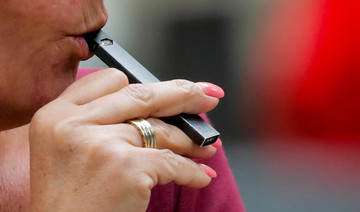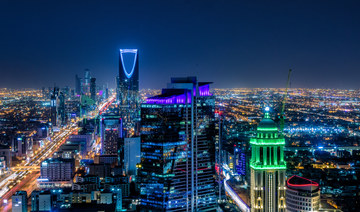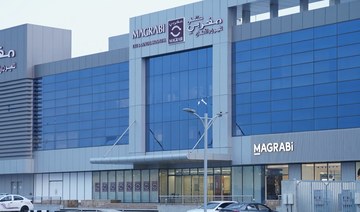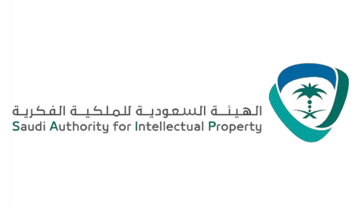ESTELI, Nicaragua: From “rich and full-bodied” to “complex with hints of licorice,” aficionados exhaust the lexicon to capture the essence of Nicaragua’s most highly-prized produce — not wine, but cigars, which are especially popular in the United States.
The recognition turns the vibrant green hills of Esteli, in the troubled Central American country’s northwest, into a hive of activity come harvest time.
Here, 800 meters (2,620 feet) above sea level, half of the population of 110,000 is employed in the tobacco industry — picking, drying or curing, or rolling cigars in factories.
“No one has soil as good for tobacco as Nicaragua,” explains Nestor Plasencia, whose family business is one of the country’s leading cigar exporters, as he sits and savors the sweet aroma of one of their creations.
Nutrient-rich volcanic soil and know-how imported from Cuba more than 50 years ago, as well as a knowledgeable workforce have set Nicaragua apart when it comes to growing flavorful top-quality tobacco.
Apart from Esteli, the two other tobacco-growing regions are the Condega and Jalapa valleys in the north, each with their own distinct soils and minerals.
Part of the lure of Nicaraguan tobacco is that “the same seeds planted in different soils and climatic regions give different flavors,” Plasencia said, between spiralling puffs.
Cuban cigars may easily outsell the lesser-known Nicaraguan product in Europe, but Nicaraguan brands have taken advantage of the crippling US embargo on Havana — in place since 1961 — to sell to the Americans.
Nicaraguan cigar exports to the US have increased by 40 percent since 2008, reaching 140 million cigars in 2018, outstripping the Dominican Republic and Honduras, according to figures from the Cigar Association of America (CAA).
Nicaragua’s industry is a young one — it was started by Cuban exiles who fled Fidel Castro’s revolution in 1959. When the Central American country’s civil war ended at the start of the 1990s, the industry started to flourish.
“My family started in tobacco in Cuba in 1865. Today we operate in Nicaragua and Honduras,” says Plasencia, whose father hails from the Caribbean island.
Today, the country has 70 factories producing more than 5,000 brands, says the director of the Nicaraguan Chamber of Tobacco Producers, Wenceslao Castillo.
Karina Rivera, a quality control supervisor at Plasencia Cigars, tests an average of eight cigars a day.
“If I see that it’s not at the level of quality demanded by customers, we report immediately to find out where the problem is,” she said.
Smokers say a lot is going on in a cigar during puffs, tasting richness, balance and complexity — a variety of flavors and aromas that have helped several Nicaraguan brands conquer the US market.
In 2018, American trade magazine Cigar Aficionado named seven Nicaraguan brands in the top 10 of its annual ranking.
As for the Best Cigar of the Year, the “E.P. Carrillo Encore Majestic” is made in the Dominican Republic, but with Nicaraguan tobacco, the magazine says.
“The strength of the Nicaraguan tobacco industry is our focus on quality, which is why we are today the largest exporter of premium cigars to the United States,” Castillo says proudly.
It’s clear that in the rarified world of premium cigars, names are important. To the aficionado, in clubs and the best bars, they trip off the tongue — La Opulencia Toro, La Imperiosa, Villiger La Vencedora Churchill...
“We believe that 60 to 70 percent of our success is due to the way tobacco is dried and the time spent on fermentation and aging — we don’t rush things,” says Castillo.
“The trilogy of this success is the soils, the microclimate and the people, the care they put into their work,” says Plasencia, who runs two factories in the Central American country and exports 15 million cigars a year to the United States.
The cigar industry has had to do more that resist climatic changes to survive.
It’s one of the few to emerge largely unscathed from the political and economic crisis that has rocked Nicaragua for more than a year, after a violent crackdown on anti-government demonstrations left more than 325 people dead and forced 62,000 into exile.
It also put 400,000 out of work in an economy that had enjoyed annual 4.0 percent growth, according to the private sector.
“If it weren’t for these factories, Esteli would surely be deserted,” says 43-year-old Silvia Moreno, who has worked in the tobacco industry for half her life.
Nicaragua puffing up status in rarefied world of premium cigars
Nicaragua puffing up status in rarefied world of premium cigars

- Nicaraguan cigar exports to the US have increased by 40 percent since 2008
- Half of town of Esteli is employed in the tobacco industry
ACWA Power, IRENA join hands to accelerate global renewable energy transition
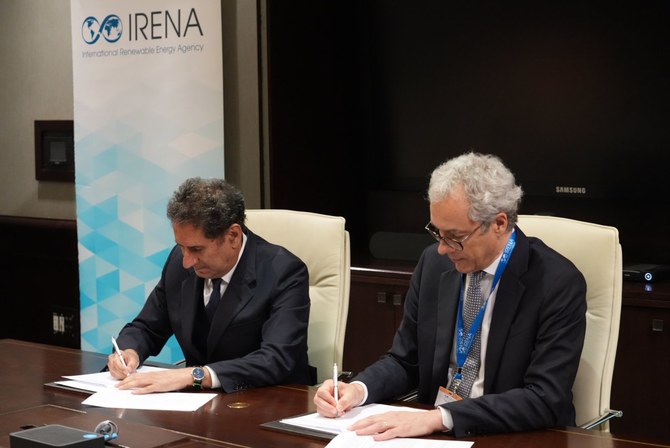
RIYADH: In a bid to add impetus to the adoption of clean energy sources worldwide, Saudi utility firm ACWA Power has signed a deal with the International Renewable Energy Agency, said a press release issued on Thursday.
The Saudi-listed firm said that the partnership aligns with its mission to provide sustainable energy solutions and seeks to accelerate the adoption and sustainable use of renewable energy across the globe.
ACWA Power will work closely with IRENA to share crucial insights on infrastructure investment in renewable energy, green hydrogen advancement, solar energy, smart grids, and the intersection of energy and water, the press release said.
The Saudi-listed company also announced its participation in various IRENA initiatives, such as Green Hydrogen, Collaborative Frameworks, Project Facilitation, the Alliance for Industry Decarbonization, the Utilities for Net-Zero Alliance, and the Coalition for Action.
As per the deal, ACWA Power and IRENA will investigate avenues to mobilize finance and investment for renewable energy projects, while also supporting infrastructure for the development, storage, distribution, transmission, and consumption of renewables.
Moreover, collaborative workshops and seminars will be arranged to exchange best practices, enhance skills, and promote awareness of the energy transition among youth, professionals, and the public using IRENA’s platforms and programs.
ACWA Power CEO Marco Arcelli said the partnership with IRENA marks a significant milestone in his company’s journey toward a sustainable energy future.
“By combining our strengths and resources, we are prepared to drive meaningful change and accelerate the transition to renewable energy on a global scale,” he said.
The CEO added that through collaborative partnerships and innovative solutions, ACWA Power remains committed to advancing the widespread adoption and sustainable use of renewable energy, shaping a brighter and more sustainable future for generations to come.
IRENA Director General Francesco La Camera commented: “We have less than a decade left to secure a fighting chance for a 1.5°C world. Accelerating the renewable-based energy transition needs industry leaders and this deal between IRENA and ACWA Power stands for the growing commitment of global industry to act on decarbonization.”
He added: “We need to act together to accelerate the sustainable use of renewables and green hydrogen across the globe.”
Closing Bell: TASI ends the week in green with trading turnover at $2.18bn
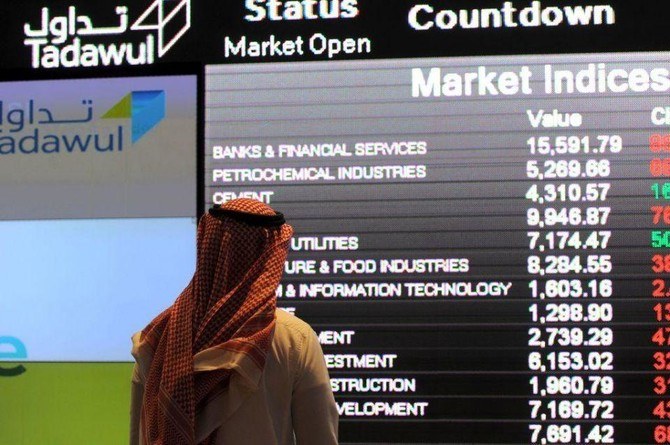
RIYADH: Saudi Arabia’s Tadawul All Share Index rose on Thursday, gaining 36.37 points, or 0.29 percent, to close at 12,502.35.
The total trading turnover of the benchmark index was SR8.19 billion ($2.18 billion) as 130 stocks advanced, while 90 retreated.
The MSCI Tadawul Index also increased by 5.98 points, or 0.38 percent, to close at 1,575.11.
The Kingdom’s parallel market, Nomu, followed suit and gained 305.77 points, or 1.16 percent, to close at 26,418.75. This comes as 33 stocks advanced, while as many as 27 retreated.
The best-performing stock on the main index was Saudi Arabian Amiantit Co., as its share price rose by 7.69 percent to SR30.80.
Allianz Saudi Fransi Cooperative Insurance Co. also performed well as its share price saw a 6.79 percent increase to close at SR20.16.
This comes as Abu Dhabi National Insurance Co. completed a strategic acquisition of a 51 percent stake in Allianz, according to the Emirates News Agency, WAM.
ADNIC Chairman Mohamed Al- Nahyan told WAM: “The connection between the UAE and Saudi Arabia is deep, mutually beneficial and ever-growing. At ADNIC, we see Saudi Arabia as a high-potential market which perfectly aligns with our overall growth strategy, and we are looking forward to unlocking new possibilities for growth and success.”
Other top performers include United Cooperative Assurance Co. and Saudi Pharmaceutical Industries and Medical Appliances Corp. whose share prices soared by 5.68 percent and 5.51 percent, to stand at SR11.16 and SR14.16 respectively.
The worst performer was Alkhaleej Training and Education Co., whose share price dropped by 5.27 percent to SR33.25.
On the announcements front, Saudi mining giant and Public Investment Fund subsidiary, Saudi Arabian Mining Co., known as Ma’aden, announced the launch of single stock options in a statement on Tadawul.
SSOs will enable local and international investors to effectively hedge and manage portfolio risks as well as diversify products available for trading in the market.
Saudi minister calls for ‘decisive financial policies’ to counter global economic uncertainties
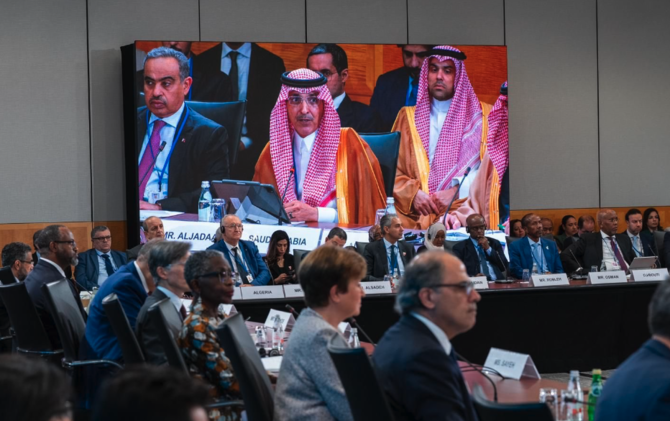
RIYADH: Saudi Arabia’s finance minister on Thursday stressed the need for “decisive financial policies” across the world to navigate through uncertain economic conditions.
Speaking during the Spring Meetings 2024 of the IMF held in Washington, D.C, Mohammed Al-Jadaan noted that such a decisive approach would bolster resilience and sustainability amid the ongoing uncertainties.
He was attending a meeting of finance ministers and governors of the Middle East, North Africa, Afghanistan and Pakistan region with IMF Managing Director Kristalina Georgieva.
“I also participated in the Global Sovereign Debt Roundtable, where I highlighted the importance of enhancing Comparability of Treatment by establishing a clear and fair framework that ensures equitable treatment among all creditors,” Al-Jadaan said in a post on X.
Additionally, the minister participated in the second G20 finance ministers and central bank governors’ meeting held under the Brazilian presidency in Sao Paulo. He emphasized that effective climate action required a holistic approach.
He said that can be achieved “by integrating diverse sectors acknowledging the diversity of solutions to address climate challenges, including using innovative technologies to manage emissions.”
Al-Jadaan also met with Jose Vinals, chairman of Standard Chartered Bank, to discuss the regional and global economic outlook.
He also met with Spanish Minister of Economy, Trade, and Business, Carlos Cuerpo to discuss ways to enhance relations between the two countries.
Moreover, Al-Jadaan held talks with Jean Lemierre, chairman of Bank BNP Paribas, the global head of Official Institutions Coverage, Laurent Leveque, and the head of Debt Capital Markets, Alexis Taffin.
They discussed progress made in Saudi Arabia, as well as issues related to attracting investment and alternative financing.
Magrabi opens new complex in Makkah
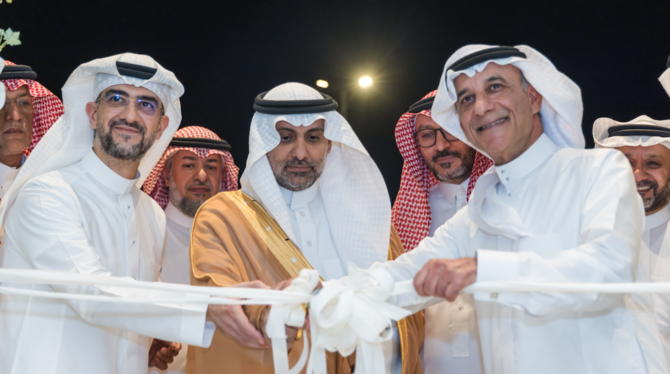
RIYADH: With a new branch in Makkah, Magrabi Hospitals and Centers are expanding to more Saudi cities to meet the growing demand for specialized ophthalmological and dentistry care.
Minister of Health Fahad Al-Jalajel inaugurated the medical complex and one-day surgery center in the holy city, accompanied by Magrabi Hospitals and Centers CEO Mutasim Alireza, the Group’s Deputy CEO and Cheif Operating Officer Abdulrahman Barzangi, and several officials and dignitaries.
Al-Jalajel underscored that the opening reflects the Kingdom’s commitment to enhancing the quality of its healthcare services and transitioning toward a more comprehensive and integrated medical system.
He further stated that this initiative is a vital component of the Health Transformation Program, a foundational aspect of Saudi Vision 2030, which has achieved significant milestones and advancements in the medical sector under the leadership of Crown Prince Mohammed bin Salman.
Following the official inauguration, the minister toured the complex’s facilities, noting its significance as a notable project and a valuable contribution to the Kingdom.
Alireza said: “This specialized medical complex underscores our commitment to being at the forefront of healthcare for ophthalmology and dental services and continuing our mission to offer specialized medical services that meet community needs with the utmost quality and safety.”
In March, Magrabi Ophthalmology and Dentistry Hospital Dammam officially opened its doors in Al-Shaala, marking an achievement for medical care in Saudi Arabia.
The Magrabi Dammam health facility is the largest specialized center in the region and provides sub-specialized services, meeting the highest quality standards and leveraging the latest global technologies.
UAE records 64% surge in trademark registrations
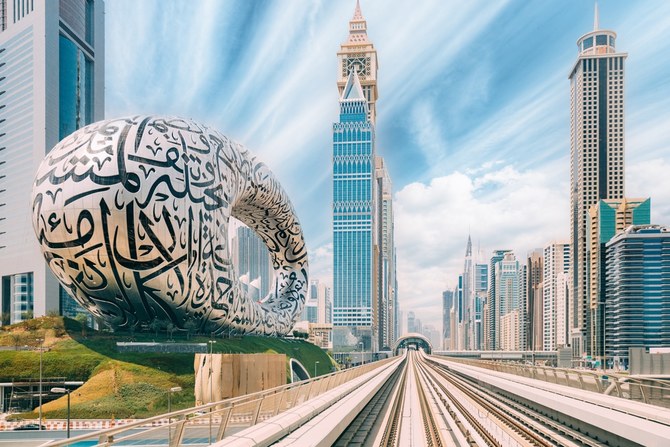
RIYADH: The UAE recorded an annual 64 percent surge in trademark registrations, amounting to 4,610 in the first quarter of 2024, official data showed.
The figures, released by the nation’s Ministry of Economy, reveal the notable increase from 2,813 signups in the same period of 2023.
March emerged as a particularly prolific period, with 2,018 new brands reported.
The trademarks registered during this time span a wide range of key sectors, including smart technology, transportation, food and beverage and pharmaceuticals as well as medical devices, finance, real estate, and more.
The preceding months of January and February collectively accounted for 2,592 trademarks, further highlighting sustained growth and momentum in registrations.
As the country continues to position itself as a global business hub, trademark registrations serve as a crucial indicator of economic vitality and innovation-driven growth.
In a release on X, the ministry noted on April 17 that it has: “Worked on developing the trademark registration service, using the latest technologies and innovative solutions to achieve higher efficiency and better interaction with clients.”
The UAE’s adherence to international treaties and agreements further strengthens its trademark registration regime.
By adhering to agreements like the Paris Convention for the Protection of Industrial Property and the Agreement on Trade-Related Aspects of Intellectual Property Rights or TRIPS, the UAE facilitates international trademark registration and enforcement, empowering businesses to broaden their operations across borders.
The nation has further established mechanisms for enforcing trademark rights and combating infringement.
These include civil remedies, such as damages, injunctions, and seizure of infringing goods, as well as criminal penalties for trademark counterfeiting and piracy.










